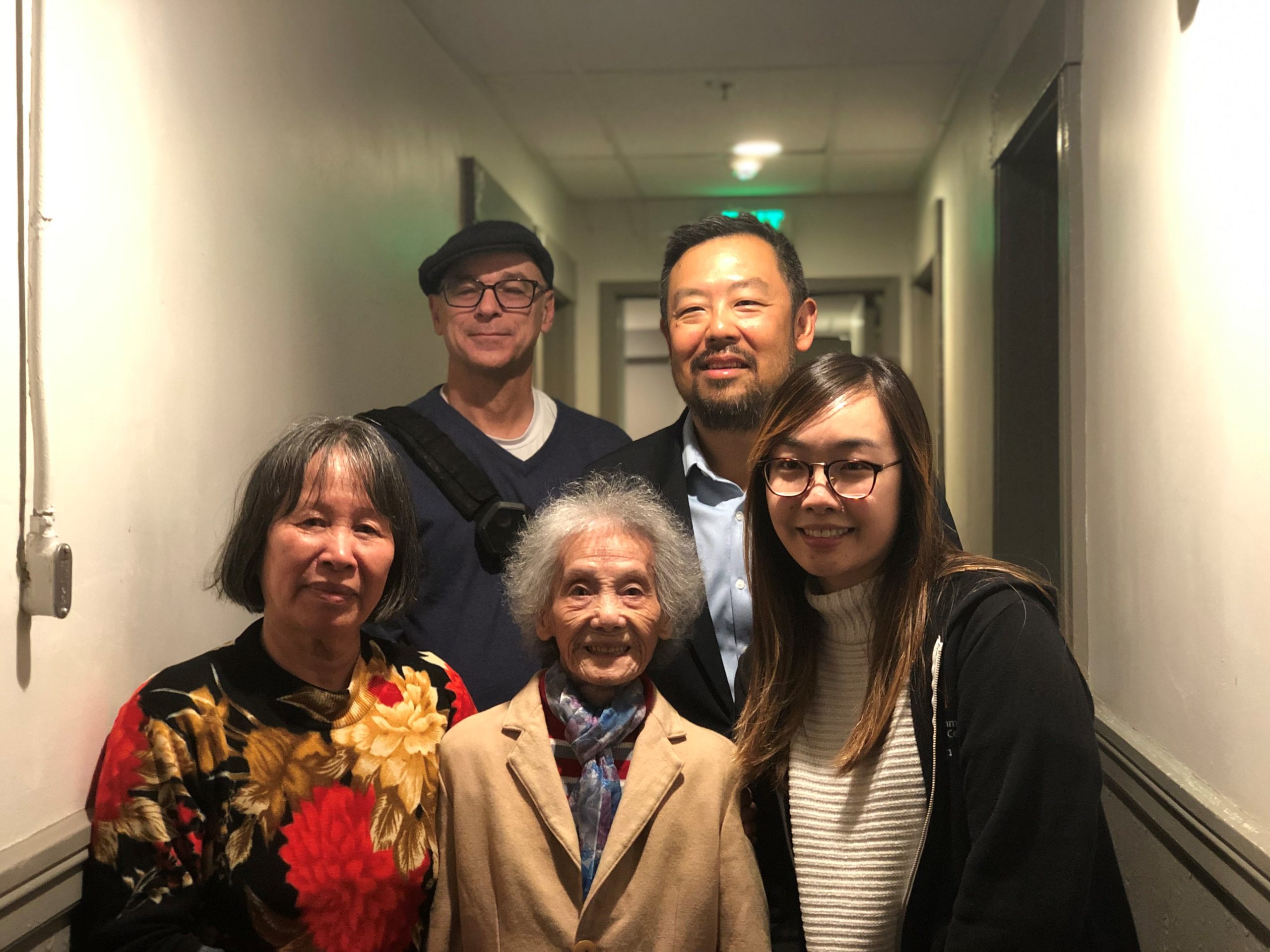Bella Huang wasn’t giving up her home without a fight.
The restaurant worker lives at 937 Clay Street, a 71-unit Single Room Occupancy (SRO), one of the more affordable buildings situated in the heart of San Francisco’s Chinatown.
During her seven years in the building, Huang, 36, made repeated complaints that 937 Clay’s communal sinks, showers, and toilets were filthy and in constant need of repair. There also was exposed wiring throughout the building, and the stoves in several units weren’t working.
The conditions were so atrocious that at one point, only two toilets and five showers were functioning for the more than 100 tenants who lived in the building. Tenants were forced to wake up early to avoid long lines for the bathroom.
“It was awful,” Huang says. “Even though many of us can’t afford to live anywhere else, we shouldn’t have to live like that.”
Two years ago, Huang began advocating for herself, and her fellow tenants, by working with a San Francisco Foundation grantee, Chinatown Community Development Center (CCDC), to stave off displacement and constant harassment by the then-owners of the building.
In 2017, CCDC helped more than 50 tenants at 937 Clay Street file a successful lawsuit in San Francisco Superior Court against the building’s owners on the grounds of inhabitable living conditions. With rents ranging from $400 to $600, the building is a necessity for the tenants in a city where the average rent for a one-bedroom apartment is more than $3,700 and climbing, according to online site rentcafe.com.
“After we sued, the building owners and the landlord quickly began making repairs to the toilets, the shower areas, even installing handlebars for the senior citizens. You could see the improvements,” says Rita Lui, a community organizer with the Chinatown CDC.
That was just the beginning. Last year, CCDC received an $11 million loan and other funding through the San Francisco Housing Accelerator Fund (SFHAF) and the San Francisco Foundation to purchase and further rehabilitate 937 Clay Street. CCDC’s ownership of the building allows the rents to remain at a stable price for tenants.
“At least they don’t need to face the constant threat of being evicted,” Lui said. “Now, these tenants have more security and more peace of mind.”
Huang says after CCDC purchased the building, CCDC began holding regular tenant meetings to listen to their concerns. There are also new rules to follow, including quiet hours, and, the building is noticeably much cleaner.
Since 2016, the San Francisco Foundation has given a combined $1.5 million in grants and funding to a group of nonprofits fighting displacement across the city under a coalition called San Francisco Communities Against Displacement (SFCAD). The coalition includes CCDC, the Mission Economic Development Agency (MEDA), Tenderloin Neighborhood Development Corporation (TNDC), Young Community Developers (YCD), Community Youth Center (CDC), and Without Walls.
“Relationship-building across communities of color doesn’t happen in San Francisco as much as you’d want it to happen,” says Malcolm Yeung, deputy director of CCDC. “That’s why this coalition is so significant. It fosters working partnerships around preservation activities. These relationships were made possible because of SFCAD.”
Luis Granados, the passionate and longtime executive director of the Mission Economic Development Agency (MEDA), agrees.
“It’s important that we all work together and share best practices,” Granados says. We’re saving our residents from leaving and being evicted from their homes. We need stable and vibrant communities.”
Like CCDC in Chinatown, organizations like MEDA have been purchasing buildings to combat displacement in the Mission neighborhood for years. Just in the last two years, MEDA has bought 25 buildings to preserve affordable housing in the neighborhood.
Granados says he’s heard from other organizations and nonprofits from across the country who say they like what MEDA is doing and have asked, ‘Can you please help us?’
The foundation is also contributing $250,000 to support the coalition’s campaign committee for 2020, a year with several housing-related measures up for voter approval locally and nationally.
This year, SFCAD is encouraging San Francisco voters to approve a $600 million bond that would be the biggest affordable housing measure in the city’s history. Anticipation is high as the measure is now double the original $300 million bond proposal.
The bond could bring up to 2,800 new housing units to the city and needs to pass by a two-thirds majority for approval this November.
“What happens in Chinatown, in Bayview, in the Tenderloin, and in the Mission affects all of us,” Granados says emphatically. “We’re all in this together.”
By Terry Collins, foundation consultant


